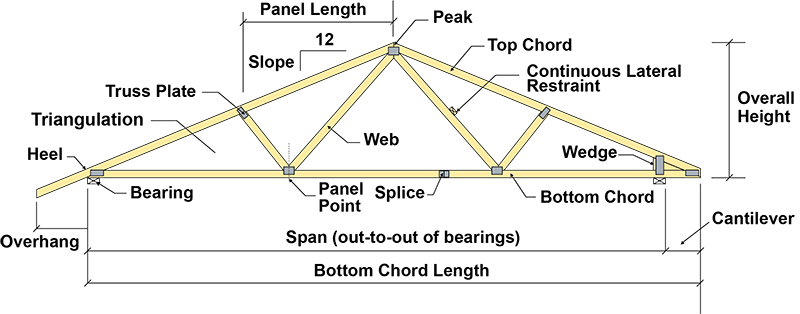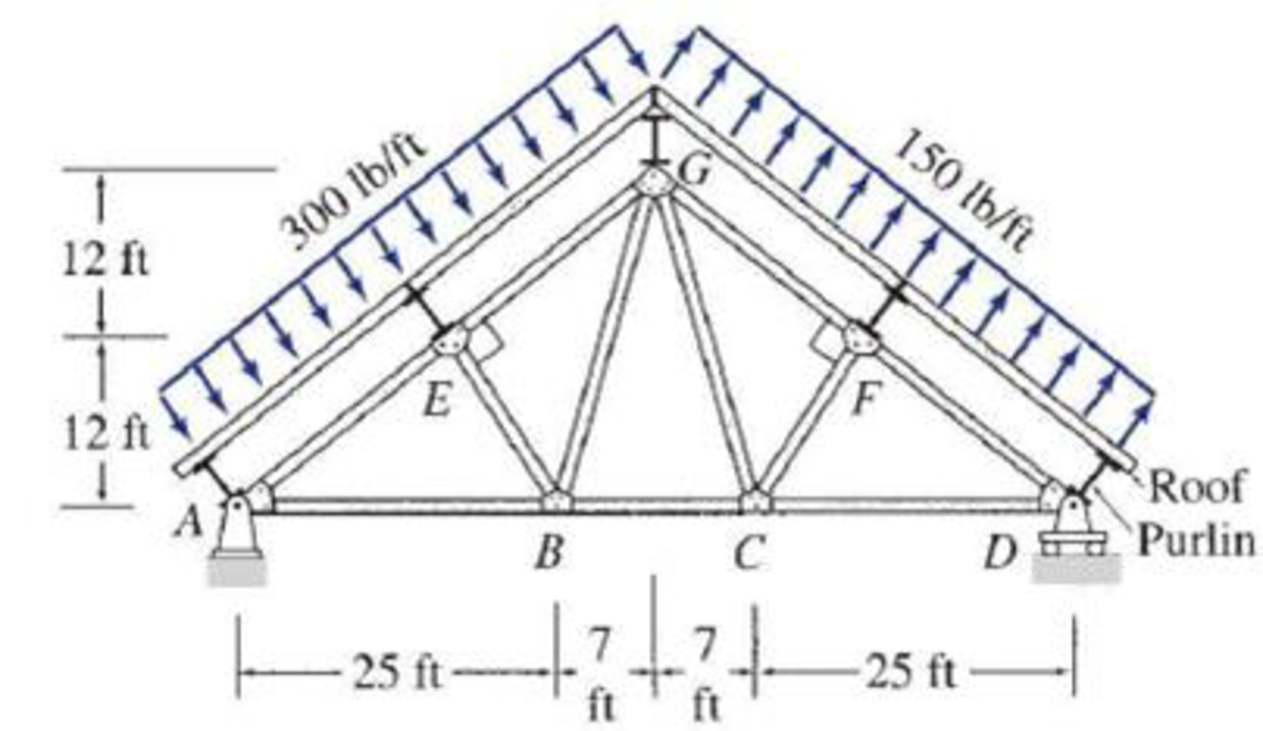While this article focuses on configurations we also have a very cool set of illustrations showcasing the different parts anatomy of roof trusses.
Roof and truss point loads supported.
These consist of weights of trusses roof coverings purlins and bracings.
In order to stay intact and in place a roof must be able to resist loads both permanent and temporary that are pushing.
Just as there are many types of roofs with many roof parts there are many different types of roof trusses this extensive article explains through a series of custom truss diagrams the different truss configurations you can use for various roofs.
Factors affecting the need for central support include the size and type of truss used in a construction project.
If dead loads must be hung from trusses then extra support can be provided by installing support beams perpendicular to the trusses reducing the span of the bottom chords and increasing their ability to carry the weight load.
The amount of weight a truss needs to support per square foot is important.
Compromised trusses can lead to severe structural problems such as bowing exterior walls sagging ridge lines and roof collapse.
In order for a roof truss load to be stable you need to assign two of your nodes on each truss to be support nodes.
Extra support for the trusses can be made by placing a 2 by 4 inch piece of lumber from each truss on one side to the truss on the other side high enough to provide head room but low enough to provide support for the trusses.
For such conditions the scissors truss the curb truss the shed truss the three hinged arched truss the hammer beam truss are also used.
Some trusses contain central support while others lack it.
This is a very god assumption because as we have seen earlier while introducing a truss triangle with pin joint the load is transferred on to other member of the trusses so that forces remain essentially collinear with the member.
This means that one is a fixed node and the other is a rolling node.
Load limits on the roof of a building.
A fixed node will provide support in both directions down the length of the roof truss members often called the x and y directions.
This includes all of the roofing material and ceiling along with loading for construction purposes and then environmental factors such as wind and snow.
Usually the dead load on the truss is expressed as the load per unit horizontal area.
It s crucial that we factor in the proper truss load.
Loads on roof trusses.
If the middle line of the members of a truss meet at a point that point is taken as a pin joint.
For instance determining whether roof trusses need support in the center entails numerous considerations rather than a simple answer.










